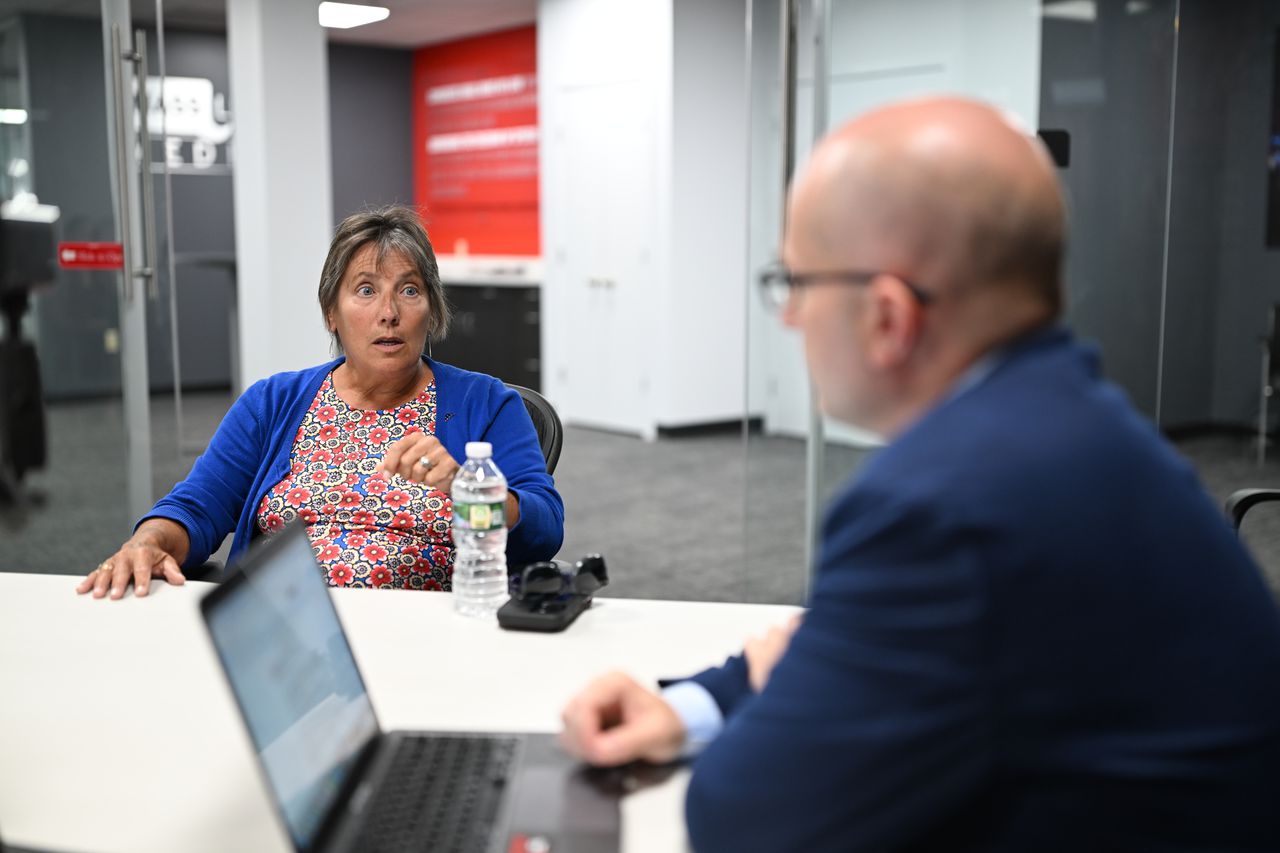Mass. Newsmakers: Part of an ongoing series talking to those with unique insight into the issues and concerns Massachusetts communities face.
_________________
Rural Massachusetts towns enjoy the charm of quaint colonial town centers, rolling hills and a sense of a tight-knit community.
The gentler pace of life and natural scenery that comes with rural living in Massachusetts also comes with its own unique sets of challenges. Town halls are open for limited hours, job opportunities may be limited and costly repairs to roads and bridges can present financial strain on a community’s budget.
To that end, Gov. Maura Healey established a new role within her administration with the specific purpose of advocating for rural communities. She chose Anne Gobi, a former legislator with more than 20 years of experience at the State House, to take on the role and create a stronger bond with historically underserved communities.
“There are absolutely different needs that the rural communities have — different challenges,” Gobi said in an interview at MassLive’s office in Worcester. She pointed out that rural communities face many of the same challenges that cities face, such as transportation and housing issues. However, they may not have the same access to state and federal programs available to larger communities.

Massachusetts Director of Rural Affairs Ann Gobi speaks to the MassLive newsroom Friday, August 11, 2023.Dave Thompson | Masslive
“Coming into this role, I wanted to be a good conduit for those (rural) communities and to try to be an extra strong voice for them,” Gobi said.
Rural communities in Massachusetts are defined by population (less than 7,000) or population density (less than 500 per square mile) based on the 2020 Census. Massachusetts has 181 towns considered rural.
Gobi’s appointment comes as Healey’s administration pushes for more geographic equity across Massachusetts.
In a roundtable discussion with MassLive staff, Gobi discussed her efforts to shape her newly established position in state government. She also shared insights on how her years as a lawmaker, which included involvement in various committees and caucuses addressing rural matters, have influenced her outlook.
Gobi, of Spencer, was first elected to the State House as a state representative in 2001 before being elected as state senator in 2014 when she represented 22 communities in Worcester and Hampshire counties.
“It’s absolutely an exciting challenge,” Gobi said about her appointment as rural affairs director. “It’s a little different because there’s not really a set blueprint to follow.
The first order of business since Gobi’s official start on June 5 was to get acquainted with more than 100 communities she did not deal with directly in her lawmaker role.
Throughout her discussions across various communities, Gobi said, some issues remain pretty consistent. For example, many communities rely on municipal services working out of aging buildings that need updating.
“Almost every community I’ve talked with has a fire station that needs to be rebuilt or a police station or highway or even the town hall that they’re working out of because we’re an older state,” Gobi said.
Other issues, such as aging septic systems and a town’s water supply, do not always grab headlines but are just as important for residents of rural communities.
A month after Gobi took office, floods devastated farms throughout Western Massachusetts and the state, which led the United State Department of Agriculture to designate seven counties as primary natural disaster areas. This gave farms eligibility for low-interest loans and refinancing of existing loans.
About 110 farms and 2,700 acres were impacted by the severe flooding in mid-July and experts estimated the losses for farms to be around $15 million.
Gobi said legislators are working on securing $20 million for flood relief from farmers in an upcoming supplemental budget.
By the end of the year, Healey will need to put forward an economic development plan that sets out long-term goals and measurable milestones for programs and initiatives.
Nine meetings were held throughout the state to give officials in the Healey administration, lawmakers and business leaders the opportunity to connect with communities.
Gobi’s role will also be to ensure the needs of rural communities are part of Healey’s economic development vision.
“My office is basically my car, so I’m hoping they’re going to see me around,” Gobi said. “My first step was really reaching out to various administrators in the communities to get a handle on what some of their priorities are and try to work from there.”





